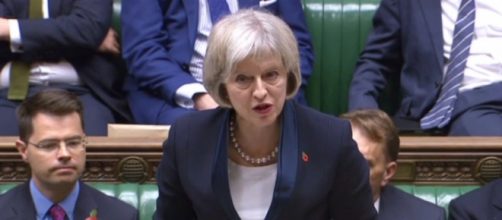Home Secretary Theresa May has appealed to legislators to back her new bill outlining powers to access the browsing history of British citizens.
She said in the House of Commons that this new attempt would strengthen the safeguards while establishing a world-leading oversight regime.
A previous attempt to give security services the powers to investigate individuals’ web browsing history was abandoned in the face of protests from the Lib Dem members in the last Coalition Government. Critics branded it a snooper’s charter.
However, there have been significant changes to the new planned legislation.
Unusually, the Bill is being presented to Parliament in a draft form, allowing for alterations before it is finally published.
Theresa May said that the new measures would not ban encryption and would have a double-lock, intended to reassure privacy campaigners.
But she said that the new measures were urgently needed, pointing out that at least six significant plots had been disrupted in the UK, as well as a number overseas. She said that the benefits of the modern digital society were being exploited by ‘organised criminals, fraudsters and terrorists.’
She denied that the measures in the draft Bill would give access to the internet browsing history of everyone in the UK. Although the Internet Service Providers will have to keep browsing records for 12 months, a ‘double lock’ would be introduced, meaning that the Home Secretary and then a judge would have to rule that the application for access was both necessary and appropriate.
She said this was really a modernizing measure, comparing it to an itemized phone bill, but there would nevertheless be strict controls over how the information could be used. And she said that local authorities would specifically be banned from accessing it.
The former Deputy Prime Minister Nick Clegg said that there were significant improvements in the new Bill, but warned that there may be flaws ‘under the bonnet’.
The Shadow Home Secretary, Andy Burnham, broadly welcomed the Bill, stressing the importance of safeguards to protect privacy and civil liberties.
He said that while most would focus on the fight against terrorism, the Bill was about ‘much more’, including child sexual exploitation and fraud.
He acknowledged that the challenges have increased significantly in recent years. He pointed to his own experience when he was a Home Office minister at the time of the 7/7 terror attacks in London.
He said that Mrs May had largely achieved a balance in the Bill, but Labour would examine the text carefully and would try to improve the safeguards to ensure a sense of trust.
Civil rights campaigners have questioned the ‘double lock’ mechanism. Shami Chakrabarti of Liberty, claimed that the second group in the equation – the judges – would not actually have a key.
The Home Secretary’s challenge now is to assess the responses to the draft Bill and then to get it through the House of Lords, where a large number of Lib Dem peers and others have civil liberties concerns. However, with a broad welcome in the House of Commons, her task has been made easier.

